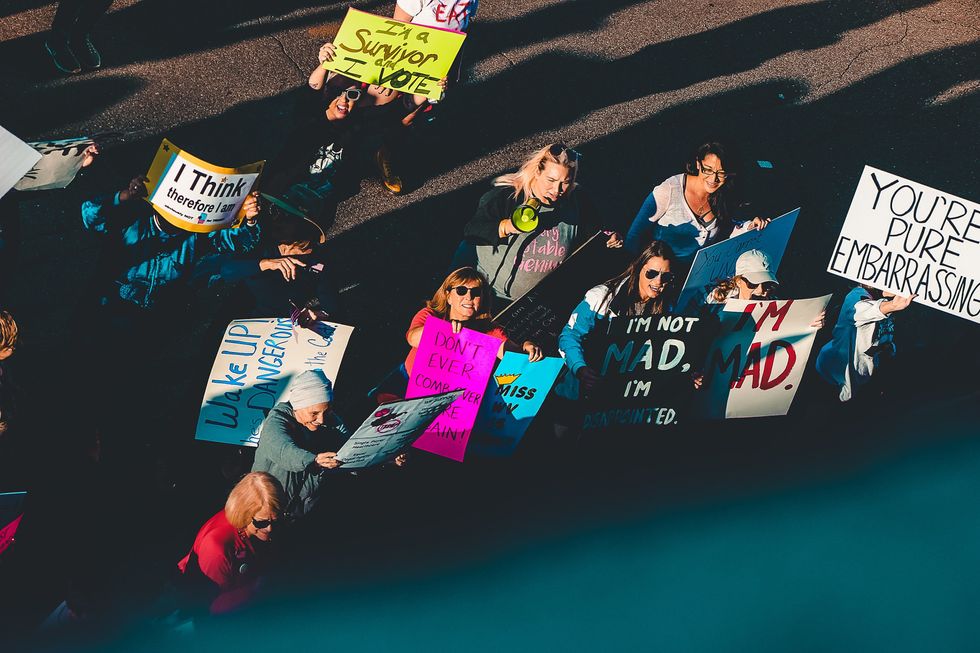I was driving eastbound on I-495 in bumper to bumper traffic when I listened closely to every painstaking detail of the Kavanaugh case. My own victimization attracted my viewership to countless hours of news television and radio - an indulgence I often avoided because I found partisan coverage to be biased and angering all at once. This was different. Whether or not she was telling the truth, what Christine Blasey Ford claimed sounded eerily similar to the episodic aggressions that were acted out on me. Whether or not she was telling the truth, she was also mortified about the fact that she didn't say anything for a long time.
I was sitting in my first therapist's office on the day that all of my abuse came back to me. It was my first appointment and she obligatorily asked if I'd ever been sexually abused or assaulted - a basic intake question for psychologists. I said no. I said no until my brain said yes. Things I hadn't remembered came back to me slowly over a course of dreams and waking flashbacks. My abuser was still close to me at 15, the age in which I realized that the extremely close relationship I'd been coerced into as a child was a manipulation to use me.
This is not about the Ford case, nor is it about lamenting pain. It's about the dissemination of hateful rhetoric towards survivors of a crime against humanity. In the same way that so many people told me that I was lying because I couldn't remember certain details, Ford was scrutinized and even bullied as a sport by a system that cared more about its politics than its people. On the internet, I saw hundreds of hateful, disturbing comments wishing harm against the accuser and even more toxic language about the reasons she couldn't possibly be telling the truth. Some of it sounded like a sensible political conspiracy, and some of it sounded like things I'd heard in my life. Stories about allegedly false accusations came out all over the place out of nowhere, seemingly just for the purpose of invalidating the "trend" of #MeToo, which turned out not to be a trend but a serious wake-up call.
I think that MeToo is important. I have been alive for barely more than two decades and have already witnessed a world where, until recently, survivors have been hushed. There is strength in numbers. How else are we going to change the statistics about attempted and completed sexual violence unless we stand together and make the decision to educate all of our children from a young age?
The thing that scares me about MeToo is not the thing itself, but that so many people cringe at the solidarity of it, of the scope of its numbers. Too many people refuse to take sexual violence seriously and it is halting closure for victims and the prevention of potential incidents. They believe that its a bandwagon to jump on and refuse to see what I see: truth.
For some, the legacy of abuse is to silence others - they figure that if they have to be quiet, we all should. The legacy of my abuse is not being able to shut up. I am content with this, and it seems that the changing world is, too.








































